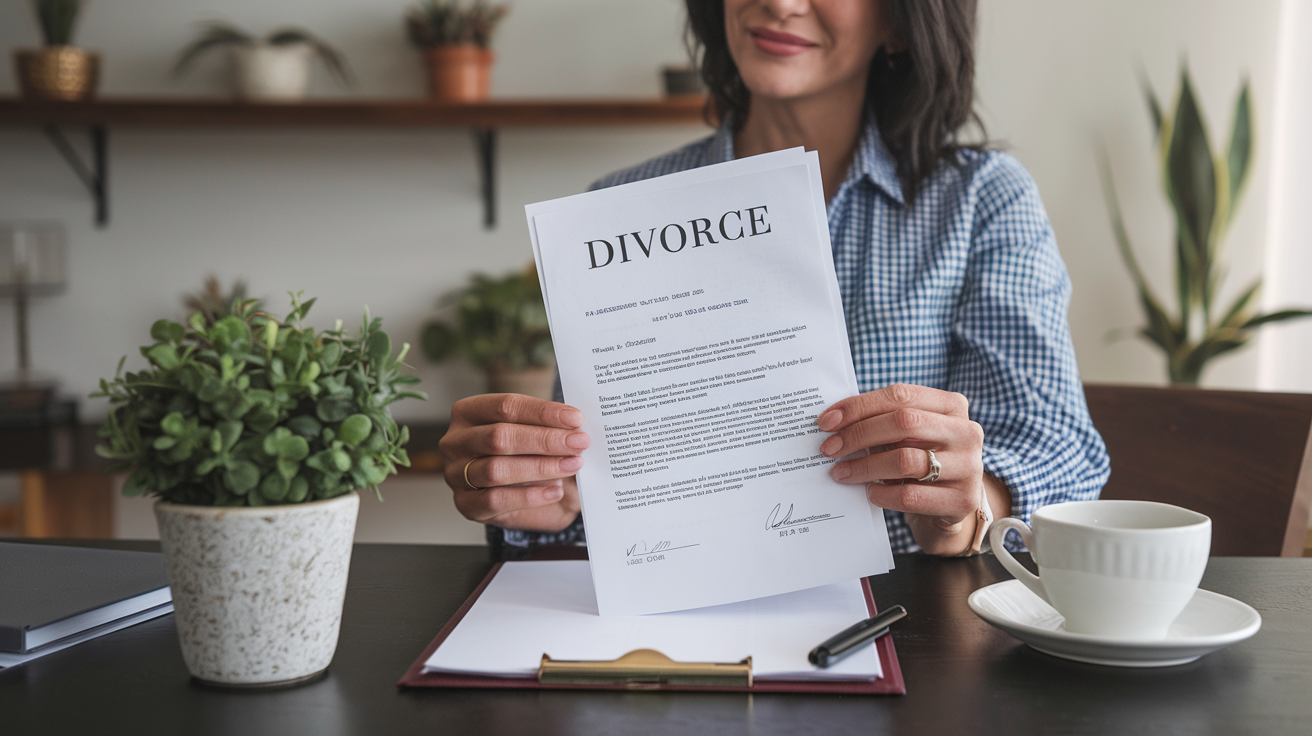Life doesn’t always go as planned, and divorce brings many decisions to make.
Among them lies a personal choice that matters more than you might think: keeping your married name or returning to your previous one.
Well, you’re not alone if you’re feeling unsure about this decision. It’s more than just paperwork – it’s about your identity, your future, and what feels right for you.
This blog will help you with the key factors to consider when deciding about your name after divorce.
Let’s look at practical aspects, emotional considerations, and the steps involved in either choice you make.
Should I Change My Name After Divorce
Choosing whether to change the name after divorce is deeply personal, and there’s no one-size-fits-all answer.
The decision affects many parts of your life – from your daily routine to your sense of self. You might want to think about your kids, your job, and what feels most natural to you.
Some people find comfort in returning to their previous name, seeing it as a step toward their next chapter.
Others prefer keeping their married name, especially when they share it with their children or have built their career around it.
Key Factors to Consider While Deciding the Name Change

There are several key factors to consider, from emotional impacts to practical challenges, to ensure the decision aligns with your goals for the future.
1. Professional Impact and Career
Your name might be tied to your professional reputation, client relationships, and work history.
Think about your business contacts, professional certifications, and industry presence.
If you’ve built a career under your married name, consider how a change could affect your professional network and whether updating all work-related documents feels manageable for you.
2. Children and Family Connections
If you have children, sharing their last names can make school and medical situations simpler.
Some parents find that keeping the same last name helps avoid confusion or questions at doctor appointments, parent-teacher meetings, or during travel.
But remember – you can still be an excellent parent with a different last name than your children.
3. Personal Identity and Fresh Start
Some people feel their married name no longer fits who they are, while others see it as part of their identity beyond the marriage.
Consider how you introduce yourself and what name makes you feel most like yourself.
The choice often comes down to what brings you peace of mind and comfort during this time of change.
4. Practical Aspects and Paperwork
Changing your name requires updating numerous documents: driver’s license, passport, social security card, bank accounts, credit cards, and more.
Consider if you have the time and energy to handle this process now. Some people choose to wait until they feel ready to tackle these administrative tasks.
5. Social Media and Online Presence
Your name affects how people find you online, including social media accounts, email addresses, and website profiles.
Think about your digital footprint and whether maintaining connections with your network matters to you.
Consider if changing your online identity aligns with your personal and professional goals.
6. Future Relationships
Think about how you want to present yourself moving forward.
Your name choice might affect future relationships or marriage prospects.
Some people prefer a clean break from their past, while others feel comfortable keeping their married name regardless of future relationships.
How Do I Change My Name After Divorce

Changing the name after a divorce is a legal process that involves several steps to ensure the change is recognized.
If you are returning to your maiden name or choosing something new, it’s important to follow the correct procedures to update all your documents and records.
- Make sure you have certified copies of your divorce decree – you’ll need them as proof for every name change request.
- Visit your local Social Security office or apply online. This should be your first stop since other agencies will request your updated Social Security card.
- Head to your local DMV with your divorce decree and updated social security card. They’ll issue you a new driving license with your chosen name.
- Fill out the passport amendment form and send it with your current passport and divorce decree. Processing usually takes several weeks.
- Contact each financial institution to update your name on accounts and request new cards. Most banks need to see your divorce decree and updated ID.
- Let your HR department know about your name change so they can update your payroll and benefits information.
- Make a list of where your name appears: medical offices, insurance policies, utilities, voter registration, and online accounts.
Pros and Cons of Changing Name After Divorce
Deciding to change your name after a divorce can bring both emotional and practical benefits, as well as challenges.
It’s important to weigh the pros and cons to determine if this step aligns with your personal and professional goals moving forward.
| Pros of Changing Your Name | Cons of Changing Your Name |
|---|---|
| A Fresh Beginning | Time-Consuming Process |
| Returning to your former name creates a clear break from your past marriage, giving you control over your new life. | The paperwork and updates across documents take time and effort. |
| Emotional Freedom | Professional Challenges |
| Going by your previous name improves confidence as you rebuild your post-divorce life. | Changing your name may confuse clients, colleagues, and your professional network. |
| Family Connection | Family Complications |
| Returning to your birth name may help strengthen bonds with your original family. | Having a different last name than your children can cause frequent inconveniences. |
| Personal Empowerment | Cost Factors |
| Changing your name can feel better and aligned with your new identity. | There are expenses involved in updating legal documents and materials. |
Conclusion
Your name is a big part of who you are, and changing it after divorce isn’t a decision to rush into.
Take time to consider what matters most to you – be it your personal comfort, professional life, or family connections. There’s no wrong choice here, just the one that fits your situation best.
Remember, you can always make this decision later if you’re not ready now. Many people wait months or even years after their divorce to decide.
The most important thing is doing what feels right for you.
Are you working through this decision?
Share your thoughts in the comments below – your story might help others facing the same choice.
Frequently Asked Questions
Why would a Woman Keep Her Ex-Husband’s Last Name?
Many women keep their married name to match their children’s surnames, maintain their professional identity, or simply because they’ve used it for many years and feel comfortable with it.
Can My Ex-Husband Force Me to Change My Last Name?
No, your ex-husband cannot force you to change your name. The choice is legally yours to make, regardless of what your ex-spouse wants.
When Divorced, Are You Still Mrs.?
After divorce, you can choose to be called Ms., Mrs., or Miss. Most women opt for Ms. as it doesn’t indicate marital status, but the choice is yours.








